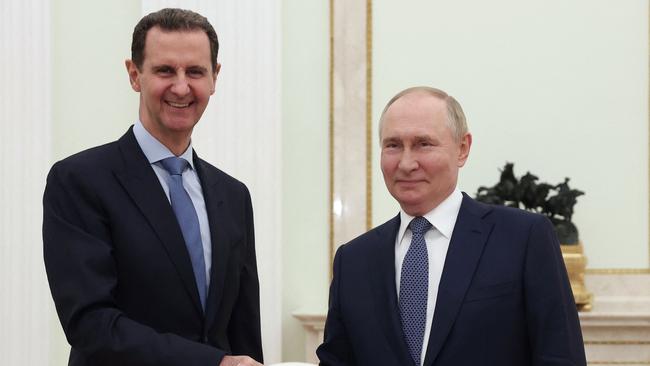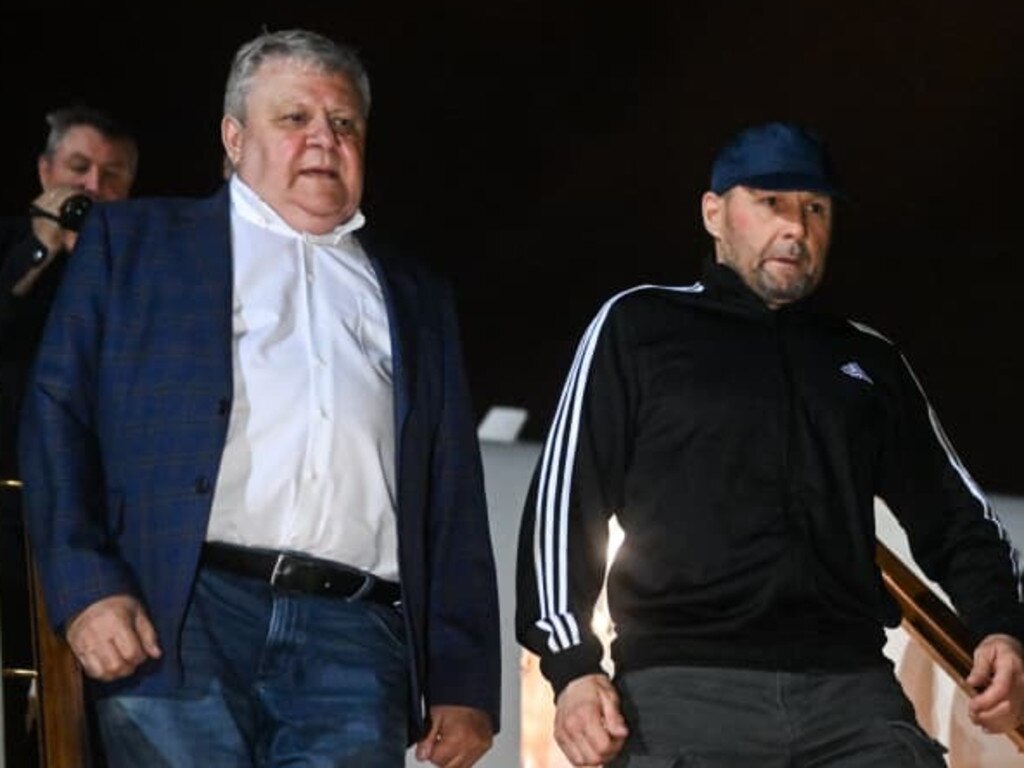Vladimir Putin ‘will ask Assad about kidnapped journo Austin Tice’
Speaking at the beginning of his annual marathon press conference, Vladimir Putin insisted Russia hadn’t suffered defeat in Syria and stays bullish on Ukraine.

President Putin has promised to ask the exiled former president of Syria, Bashar al-Assad, about the fate of an American journalist who went missing in Syria 12 years ago.
Speaking at the beginning of his annual marathon press conference, Putin claimed that he had not yet met Assad, who fled to Russia earlier this month after being toppled by Syrian opposition forces, but would ask him about Austin Tice when he did.
Putin added that Russia had not suffered defeat in Syria and that Moscow had extended proposals to Damascus’s new rulers over Russia’s military bases there. Moscow had achieved its goals in the country, he claimed.
Tice, 43, was abducted in Syria in 2012 while reporting on the civil war there as a freelancer. The US said at the time that it believed he was being held by the Syrian government.
His mother reportedly sent a letter to Putin on Wednesday asking for his help in locating her son. Putin said that he could ask Syria’s leaders, as well as Assad.
Earlier in the press conference, Putin offered the West a “high-technology 21st-century duel” to test the effectiveness of Russia’s new hypersonic ballistic missile, while boasting that his troops were advancing “along the whole line of the front” in Ukraine.
Amid soaring tensions with US and European states over the war, Putin said that if western experts doubted the speed of the Oreshnik missile, used to strike Ukraine last month, an experiment could be arranged to educate them.
“Let them determine a target — let’s say, in Kyiv — concentrate their air and missile defence units around it and we will conduct a strike with Oreshnik. And we’ll see what happens. We’re ready for such an experiment. Is the other side?”
Putin added: “There is no chance to knock down these rockets.”
The Russian leader started the press conference as he usually does, by talking about the supposed stability of the Russia economy, touching on the price of cucumbers, but quickly moved on to answer questions about what Moscow euphemistically calls the “special military operation” (SVO) in Ukraine.
Asked if Russia was closer to victory, Putin said the situation with the SVO was “changing dramatically”.
“We are moving forward along the whole line of the front,” he claimed. “Russian fighters are returning territory in square kilometres. Every day.”
He promised that Russian forces would force Ukrainian troops out of Russia’s Kursk region, but refused to give a date by which this would be done.
As he spoke, Putin asked two people to unfurl behind him a banner gifted to him by a brigade of marines from Russia’s Pacific Fleet who were in combat in Kursk.
He said that Russian troops were fighting heroically and wished them luck, to applause from the hall.
For the second year running the conference is being combined with the “direct line”, previously a separate annual televised event in which Putin makes a show of responding to questions and complaints from “ordinary people”.
Last year, Putin accused the West of an “unbridled desire to creep towards our borders” and said there would only be peace in Ukraine once Moscow had achieved its goal of “demilitarising” the country.
This year, he was in bullish mood amid Russia’s improved position on the front and the combat use of Oreshnik in response to Washington approving Kyiv’s use of western-supplied weapons against targets inside Russia.
The Russian leader may also feel emboldened by the imminent inauguration of Donald Trump as president of the United States. Trump said this week that he would consider rescinding President Biden’s decision to endorse Ukraine’s use of the long-range missiles to hit Russia, saying it was “a big mistake” and “stupid”.
Putin said at the press conference that he had not spoken to Trump for four years but was willing to hold talks.
“I don’t know when I’m going to see him,” he said. “He isn’t saying anything about it. I haven’t talked to him in more than four years. I am ready for it, of course. Any time.”
However, the Kremlin has also suffered setbacks, with Russian forces being obliged to consider a partial withdraw from Syria after the fall of Putin’s ally, Bashar al-Assad.
The two highly orchestrated appearances — the press conference and the direct line — have become mainstays of Putin’s rule over a quarter of a century.
They are used for him to rail at the US and European nations, while providing his own country with a blizzard of statistics about how its economic situation is supposedly stable and improving.
The press conference, titled “Results of the Year with Vladimir Putin”, involves questions approved in advance by the Kremlin and is attended by some foreign journalists, although very few western reporters are left in the country.
During the direct line, Putin normally poses as a munificent tsar to whom Russians can plead in order to circumvent inefficient local administrations that have failed to solve their problems.
State media said that more than two million appeals to Putin had already been received via the internet, text messages and a call centre manned partly by Ukraine war veterans, with some requests already being dealt with by the People’s Front, a political coalition backing the president.
One was from a woman with a heart defect who had been waiting three years for an operation. Her call was taken by Dmitry, a man who had gone blind while fighting in Ukraine and was touched by her plight, the government newspaper Rossiyskaya Gazeta reported. Dmitry contacted a local official and the woman went into hospital.
Putin is said to dedicate several days to preparing for the press conference, familiarising himself with questions. The Kremlin said that artificial intelligence was being used for the first time this year to give a picture of the topics that concerned Russians.
The longest press conference was in 2008 at 4 hours and 40 minutes, while the longest direct line was in 2013 at 4 hours and 47 minutes.
The Times




To join the conversation, please log in. Don't have an account? Register
Join the conversation, you are commenting as Logout